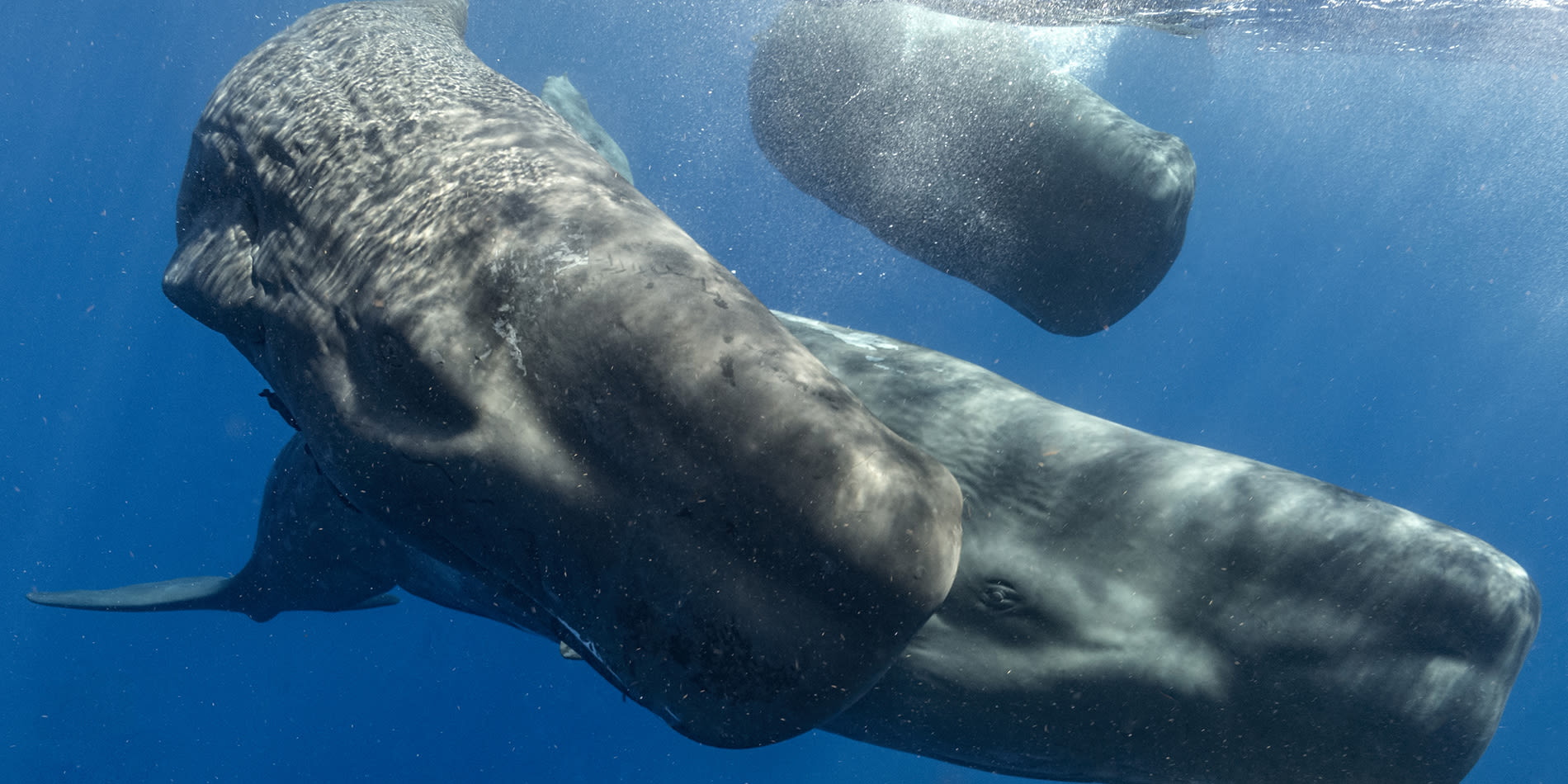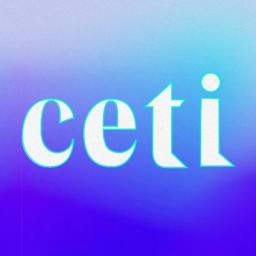
Founded in 2020 as a TED Audacious Project, the organization’s science team is made up of the world's leading artificial intelligence and natural language processing experts, marine biologists, cryptographers, linguists, roboticists and underwater acousticians. CETI’s research is taking place off of the island of Dominica in the Caribbean.
In the late 1960s, scientists, including Dr. Roger Payne, a principal advisor of CETI, discovered that whales sing to one another. His recordings, Songs of the Humpback Whale, sparked the “Save the Whales” movement, one of the most successful conservation initiatives in history. The campaign eventually led to the Marine Mammal Protection Act that marked the end of large-scale whaling and saved several whale populations from extinction.
All this by just hearing the sounds of whales. Imagine what would happen if we could understand them?
WHY WHALES
Sperm whales specifically share traits strikingly similar to humans. They live in matriarchal and multicultural societies and share dialects and strong multigenerational family bonds. Sperm whales have the largest brains of any species and have higher-level functions such as conscious thought and future planning, as well as speech and feelings of compassion, love, suffering and intuition. Their vocalizations, among the loudest animal sounds on the planet, have a Morse code-like structure that shares the hallmarks of a highly-evolved language. Our understanding of these animals and their dialects is still in its infancy. Only in the last fifteen years have we begun to learn how some of their vocalizations are used for communication.WHAT CETI IS DOING
CETI is:
-Developing non-invasive robotics to listen to a population of whales in the Caribbean and put their sounds into context.
-Deploying a “Core Whale Listening System,” an innovative hydrophone array, underwater robotic gliders, custom bioinspired whale tags and other technology to gently study the whales.
-Building on substantial data on the whales’ sounds, social lives, and behavior already obtained by the Dominica Sperm Whale Project.
-Creating a bespoke, big-data pipeline to examine the recorded data and decode it using advanced machine learning, natural language processing and data science.
-Publishing a series of academic papers beginning with the CETI roadmap.
-Collaborating with the National Geographic Society, including their Exploration Technology Lab, and amplifying the project across National Geographic’s storytelling and education channels.
-Implementing community-based programs like the Dominica Marine Conservation Fellowship, a community-based 10-month multi- module training program for young Dominicans interested in marine science, that was developed in partnership with National Geographic.
-Launching various communications projects to tell CETI’s story including a public interface for the citizen science community, resources for educators and children and arts programs.
IMPACT
Now, for the first time in history, it’s possible to use artificial intelligence to identify and interpret deep structure within animal communication. Using these technologies, CETI is building on the legacy of the “Save the Whales” movement with the goal of having an impact by contributing the following:
Interspecies Communication - A new data set of unprecedented size to the rapidly expanding field of interspecies communication and a roadmap of how humans could translate the communication of any other species
Marine Biology - A substantive contribution to the field of whale research within marine biology that opens gateways for future research initiatives.
Policy - New information about whales that can bolster policy efforts to protect marine mammals and ocean habitats. Policy advances in this area are crucial as six out of the 13 “great” whale species (the largest whales) are still endangered (World Wildlife Federation). To ensure impact in this area, CETI plans to build out policy campaigns and initiatives.
Perspective - It is widely endorsed that connectivity with nature can improve mental health. By sharing its journey and findings with the public, CETI hopes to contribute to a feeling of increased wonder and connectedness to whales and the ocean that can inspire action. CETI will build out arts and childrens’ initiatives in support of this impact goal.
Conservation - CETI’s first phase of research is taking place in Dominica in the Caribbean, a region that is one of the world’s greatest centers of diversity. By carrying out its research in partnership with local stakeholders, CETI hopes to contribute to regionally-led research and conservation efforts.
HOW CETI IS SUPPORTING DOMINICA
-CETI’s capacity-building initiative, Dominica Marine Conservation Fellowship is a 10-month, nine module training program for young Dominicans interested in marine science) in partnership with National Geographic. The program has three 2022/2023 fellows and partnerships with the Dominica National Youth Council, Dominica State College and Dominica’s Ministry of Education. The program’s curriculum (co-created with National Geographic) includes modules on marine science, scientific research/techniques, water and vessel skills and storytelling and leadership among other topics.
-All research and findings by CETI in Dominica are all open-source and will be available for Dominica. The organization’s sailing research vessel (CETI-1), a Rigid Inflatable Boat (CETI-2) and Dominican made boat (CETI-3) are in operation in Dominican waters; these boats along with other CETI equipment will be donated to the local entity at the completion of the project.
-A temporary field station has been established in Dominica and has the capacity to host 10-12 researchers, fellows and students. In the long-term, CETI plans to build a permanent field station in Dominica
-In 2023, CETI will continue local engagement and presentations with primary and secondary schools, development of video content for use in classrooms, collaborations with local artists and collaborations with local stakeholders such as marine and dive operators, civil society organizations and schools.
Fundraisers

Help us understand what whales are saying!
- Raised
- $1,090
- Next milestone
- $1,500

Project CETI
- Raised
- $1,000
- Goal
- $5,000
Donors
Alan Grazioso 1“Project CETI is doing extraordinary, pioneering work — leading the largest animal communication study on the planet. Their research is expanding our understanding of whale intelligence and helping humanity build a deeper connection with th...
- John Bickford
Having lived much of my life on or in the sea, I feel a special connection to these marvelous animals and to the ocean in general.
Margaret Maher The work of Project CETI is beyond exciting - it has the potential to change the human understanding of all of Earth and our place in it. We need this work now more than ever, so please know there are many out here who are cheering you on a...
